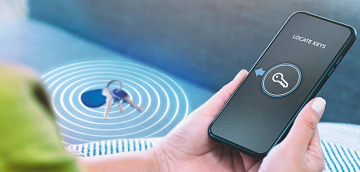Sidebar
Advances in technology mean that smart clothes are moving away from the preserve of fitness fanatics and heading squarely into the mainstream. But what if our clothes could tell us not only how we’re doing but how they’re doing as well?
栏目
科普知识
Smartphone battery life remains a frustration for many users. The same problem also applies to a wide range of IoT devices. Although it’s easy to bury yourself in detail seeking a perfect solution, it’s important not to lose sight of the broader picture.
栏目
科普知识
A growing number of everyday digital devices, including things like smartphones, door locks, and even the latest cars, now use a wireless feature called spatial awareness. A spatially aware digital device can understand where it is in relation to other devices, and then respond to changes in the positioning of those devices. Spatial awareness makes it easier for us, the users of digital devices, to move through our days.
栏目
技术文章
如今生活中我们已经基本离不开电子产品,而大多数电子产品,只要能够进行联网的设备,大多都会采用三种连接方式,蜂窝网络、Wi-Fi、蓝牙。而BLE作为蓝牙的低功耗技术,如今也广泛应用在了许多场景当中。而这两年由于受到了疫情的影响,让人们的生活习惯也随着发生了一定的改变,对于蓝牙市场而言也造成了一定的影响。蓝牙技术联盟便在此前表示过,2020年蓝牙市场发展减缓,在汽车以及智能手机等特定市场的出货量有所下降,但在无线鼠标、键盘等居家办公用品,以及穿戴式健康监测装置领域,蓝牙产品的出货量是上升的。蓝牙联盟预计,在疫情结束后,蓝牙出货量将恢复增长。
栏目
科普知识
1.Low Power Consumption
2.High cost-effectiveness and Compatibility
3.Stability, Safety and Reliability
4.Wireless coexistence
5. Connection range
6.Ease of use and integration
2.High cost-effectiveness and Compatibility
3.Stability, Safety and Reliability
4.Wireless coexistence
5. Connection range
6.Ease of use and integration
栏目
科普知识
